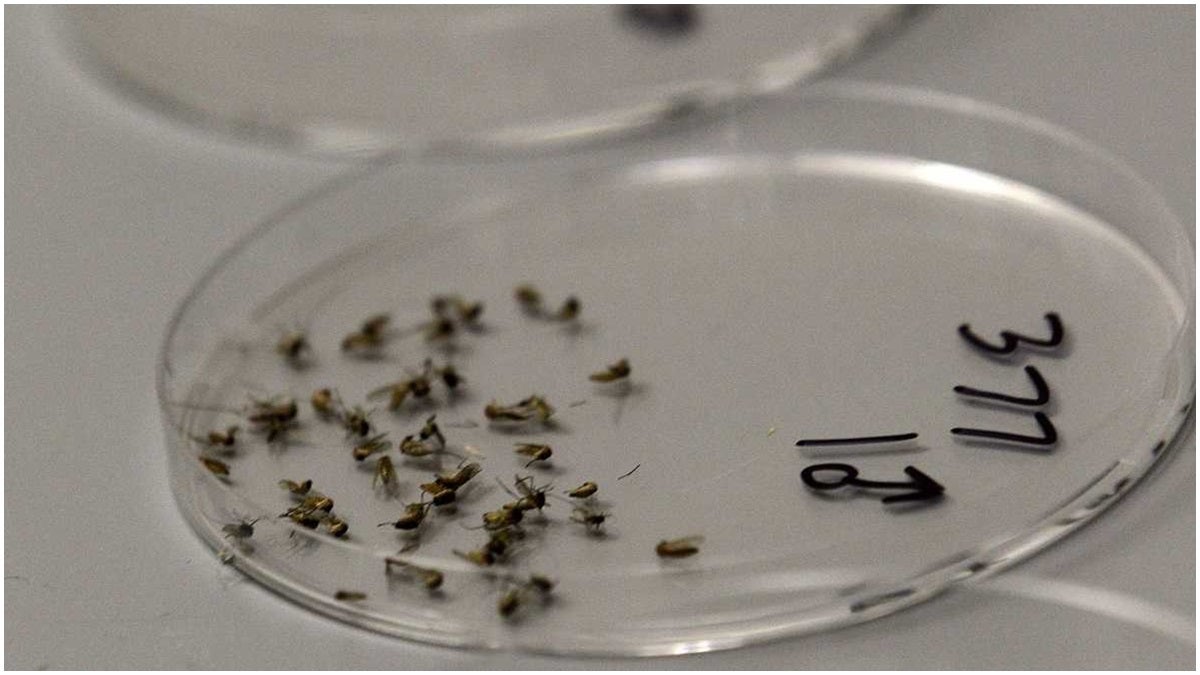Two more Zika cases in Delaware

(AP Photo/LM Otero_File)
Delaware health officials announced two more travel-related Zika cases, bringing the state’s total number of cases to three.
All three cases are the result of a mosquito bite during visits to the countries where Zika is widespread.
According to the Division of Public Health (DPH), the state’s second case involved an adult male, who was tested after showing symptoms of the disease from a January 2016 trip. In the third case, an adult female, who is not pregnant, also showed symptoms of the disease following a late February-early March trip.
Zika is a very mild illness and the vast majority of people exposed to it do not develop symptoms. The most common symptoms are fever, rash, joint pain or pink eye.
The most significant long-term health problems linked to Zika are serious birth defects.
“We are not surprised that there are additional Zika cases in Delaware given how often people travel and that the virus is now so widespread in South America, Central America, and the Caribbean,” said Dr. Karyl Rattay, DPH director. “With the upcoming spring break and a potential for even more travel to the countries where Zika is common, DPH reminds people to avoid being bitten and, if a woman is pregnant or trying to get pregnant, postpone travel if at all possible, and talk to your doctor if you plan to travel.”
Rattay added while both cases were mild and that risk of infection to others is extremely low, “It is also important to consider the risk of sexual transmission of the virus, and to use condoms if it is possible the male sexual partner has been exposed to the virus.”
Zika is primarily spread by mosquito bite, not through casual contact like hugging, kissing, shaking hands or sharing utensils. It can also be transmitted from a pregnant mother to her baby during pregnancy. In rare cases, it also may be transmitted sexually in semen.
“Zika transmission continues to spread to new countries and the best way for people to protect themselves from Zika or any mosquito-borne illness is to prevent mosquito bites during travel abroad and during Delaware’s mosquito season. It is possible that local transmission could occur either from mosquito bites once the season starts, from sexual transmission, or from mother to baby during pregnancy. Taking precautions is the best protection,” added Dr. Awele Maduka-Ezeh, DPH medical director.
The first Delaware Zika case involved an adult female. It was reported in February. According to the CDC, there are almost 260 travel-related Zika cases in the U.S., six of which were contracted sexually.
There is no vaccine or antiviral medication available to prevent the virus infection.
WHYY is your source for fact-based, in-depth journalism and information. As a nonprofit organization, we rely on financial support from readers like you. Please give today.


